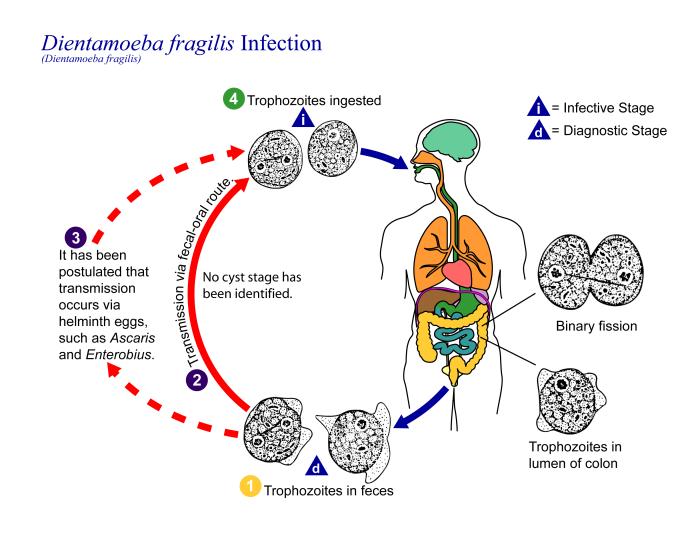In the latest installment of the Parasites 101 series on the podcast, Parasitology teacher and author of Parasites: Tales of Humanity’s Most Unwelcome Guests, Rosemary Drisdelle joined me to discuss the protozoan parasite, Dientamoeba fragilis.
“The unflagellated human flagellate”, D. fragilis is a pathogenic protozoan parasite with a world-wide distribution. Interestingly, a resistant cyst stage has not been demonstrated and it is unlikely that its trophozoites can survive successfully outside the human host.
D. fragilis infection may be acute or chronic, and has been reported in both children and adults.
Podcast: Play in new window | Download
Subscribe: Apple Podcasts | RSS
Save up to 40% off tours & activities in San Francisco
Other podcasts with Rosemary Drisdelle:
- Parasites 101: Ascaris lumbricoides
- Parasites 101: Cyclospora
- Parasites 101: Entamoeba histolytica
- Diphyllobothrium: The largest known tapeworms that can infect people
- Parasites 101: Swimmer’s itch
Other podcasts about parasites:
- Raccoon roundworm: The rare and potentially lethal zoonosis
- A look at the neglected tropical disease, Chagas disease
- Naegleria fowleri: An interview with Dr Jennifer Cope
- Coyote tapeworm in Alberta: 5th human case reported
Related:
- Parasites: Obama gets his second namesake species
- Parasites: 6-ft pork tapeworm removed through man’s mouth
- New hosts for Chagas disease vectors identified
- Slavery brought schistosome parasites from West Africa to the Caribbean: genomics reveals



This has NEVER been shown to be a pathogen. It is found in completely healthy individuals as well as people with vague abdominal symptoms. In our analysis (of nearly 1000 positive for Dientamoeba) less than 2 % had actual diarrhoea. Many have other true pathogens founds along with Dientamoeba such as Giardia, Salmonella etc. It most likely just passes through the gut like many other organisms. No one has been able to show any effect on the intestine like other known pathogens in the gut (eg Giardia, Entamoeba histolytica and Cryptosporidium). Also treatment with antiparasitic drugs does NOT clear one of Dientamoeba in more than half of the people colonised with this protozoa. The Royal College of Pthologists of Australasia and the Australia and NZ Society of Paediatric Infectious Diseases have written guidelines and suggest NOT to test or treat cases where Dientamoeba is merely found in the faeces.
Dr Rosemary Drisdelle needs to update the information she has given here. A cyst stage has been described and there is a very sensitive test (PCR) for this nonpathogenic protozoa. Treatment does NOT clear this organism in more than half of people carry it (big European study).